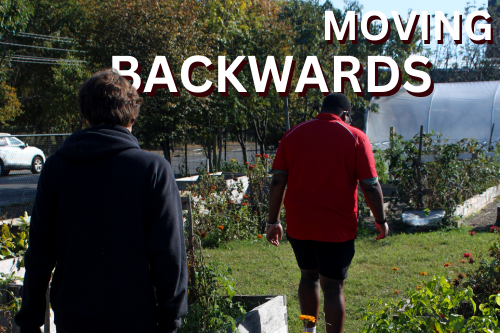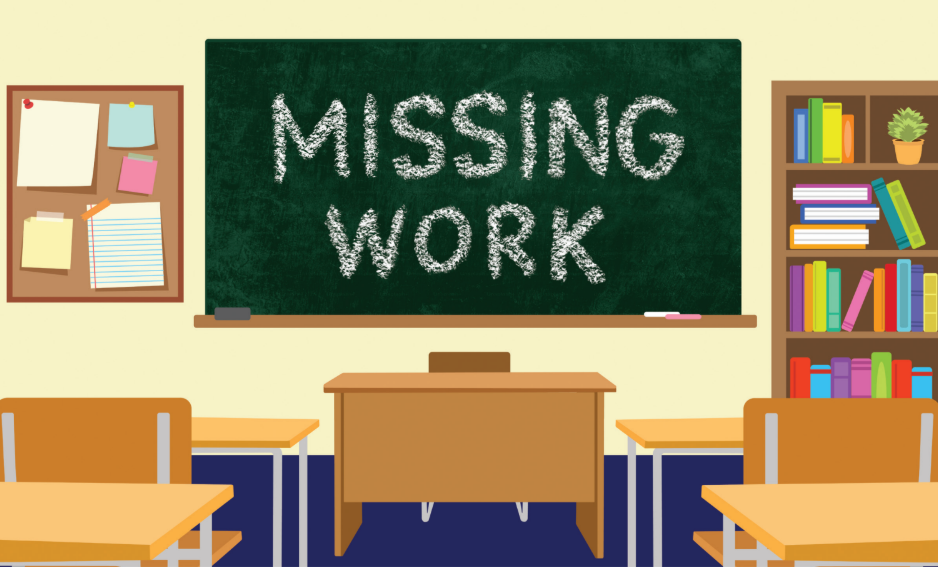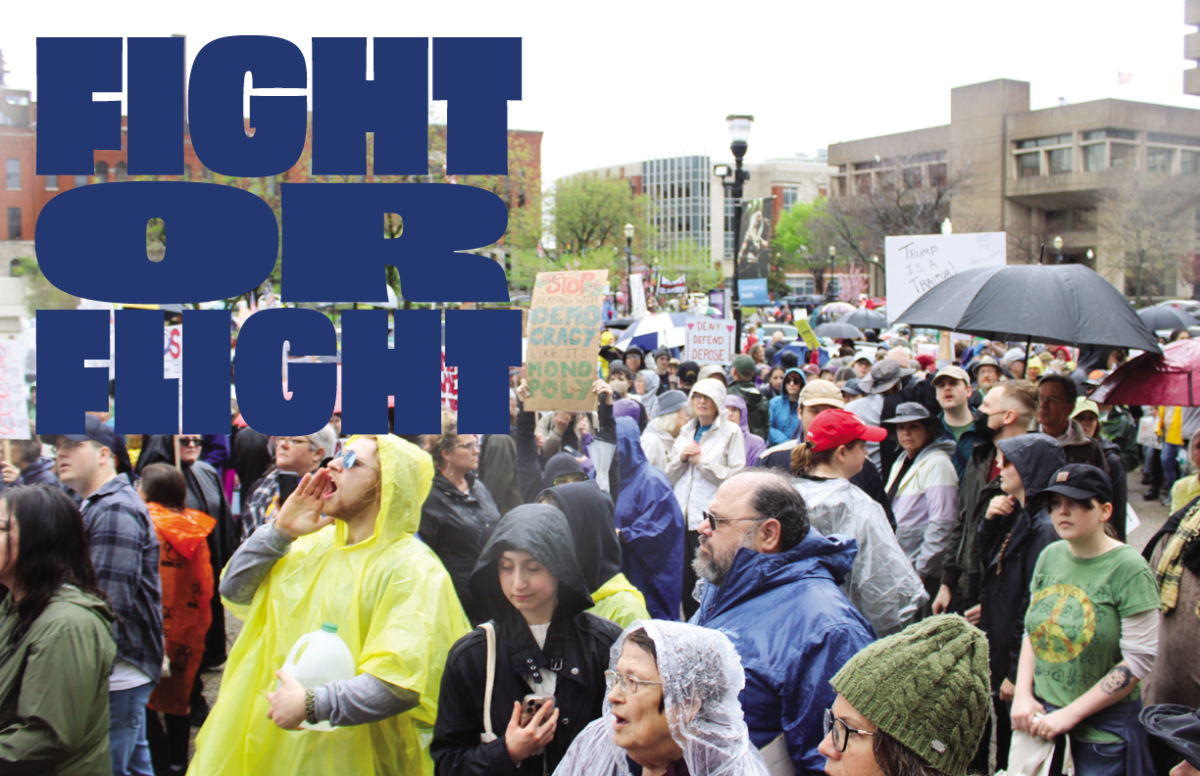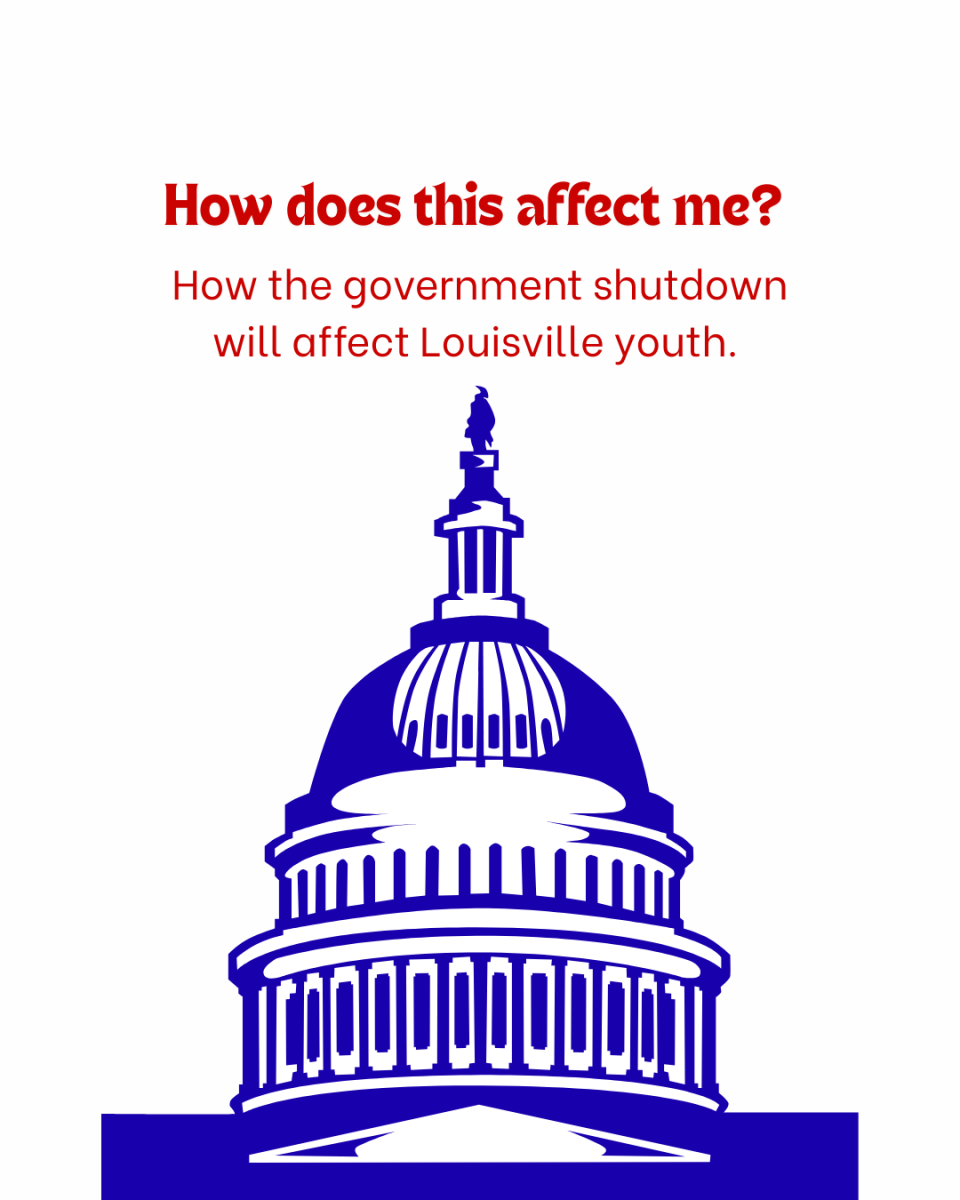Right at this moment, someone in your life could be in danger of losing their family, their home, their future. You see them every day, but you may not see their struggles. You may not know that when they hear a knock at their door, they feel a chill up their spine. You may not realize that every time they leave the house, they make sure to take a set of papers with them. They’re your favorite waiter at the local bakery, they’re your neighbor who sends you cookies on holidays, they’re your co-worker that you go to when you need help. You know their name, but you may not know their status under DACA.
According to the United States’ Citizenship and Immigration Service, the state of Kentucky has supported more than 6,000 people under the executive order DACA, or Deferred Action for Childhood Arrivals. DACA was created in 2012 by former President Barack Obama when Congress failed to pass the act for Development, Relief, and Education for Alien Minors, or the DREAM Act. DACA aims to protect undocumented immigrants who arrive in the U.S. under the age of 17 from deportation.
Isai Sanchez, a 19-year-old student at Berea College, quickly glanced down at his phone as he walked to his next class. What he saw on the screen forced him to stop in his tracks. Getting to class on time was no longer his priority. Instead he was thinking of his and his family’s future. President Donald Trump threatened to repeal DACA over Twitter, altering thousands of lives in only seconds. Sanchez immediately thought of his parents who had been living in the United States for the majority of his life and had nothing back in Mexico. He thought of the possibility of his parents being deported and having to take his sisters with them despite the fact that they were born and raised in America. Everyone around him carried on to their next class as if nothing had happened, not realizing the trauma that awaited Isai and his family.
Sanchez is DACAmented, meaning that he is allowed to live and work in the United States under DACA. He moved to America when he was only 18 months old. In other words, he didn’t have any say in where he was living. He registered for DACA a month after it was released, but once his papers expire, his future is in the hands of U.S. Citizenship and Immigration Services and Congress.
To qualify for DACA, applicants must have begun living in the United States before they turned 16 and have lived here continuously since June of 2007. They also must have been under the age of 31 on June 15, 2012. Under DACA, undocumented immigrants can get a driver’s license, worker’s permit, social security number, and many other essential documents they need to live and work in the United States.
Sanchez kept telling himself that he had known this would happen and that it wasn’t a surprise, but it didn’t numb the feelings of worry and fear racing through his mind. Deep breaths. No need to panic. He picked up the phone and called his parents. Because the Sanchez family expected the repeal, they had already made plans for their protection. If Trump won the election in November of 2016, Sanchez would move to England and continue his higher education, while his parents moved to Canada with his sisters. So, when Trump did win, Sanchez followed through with his plan to apply for a visa so he would have the ability to start learning and working in England.
The threat of DACA’s repeal, announced on Sept. 5, 2017, has the potential to tear Sanchez’s family apart.
The U.S. government officially identifies people who are currently under DACA as temporary citizens. These temporary citizens can stay for two years at a time as long as they renew their DACA papers. When illegal immigrants register for DACA, they are admitting to the government that they’re illegal immigrants. The government knows who and where DACA recipients are and when their DACA papers expire, so these people are even more at risk of deportation than other undocumented people in the U.S. Despite these negative aspects, DACA allows illegal immigrants to acquire a social security number, giving them the opportunity to work in conventional jobs. Many illegal immigrants who aren’t living under DACA tend to stay “underground,” meaning that they seek employment where they’re paid under the table. With jobs like these, it is easier for unDACAmented people to avoid paying taxes, which has detrimental effects on the U.S. economy. According to Investopedia, a private finance and investing website headquartered in New York City, the underground economy accounts for between 7% and 11% of the economy in the U.S. and an estimated 400 to 500 billion dollars is lost in tax revenues every year.
Although DACA has produced significant economic gains, Jeff Sessions, the United States Attorney General, formally announced the threat of a repeal on Sept. 5 at the Justice Department of the United States. Earlier that morning, Trump tweeted, “Congress, get ready to do your job – DACA!” Trump was originally going to repeal DACA altogether, but instead he gave Congress six months to pass a replacement for DACA before shutting it down completely. This ultimatum is already proving difficult for Congress, with a lack of overwhelming partisan majority and party factions blocking a straight decision.
Many people in the immigration activist community expected the eventual repeal of DACA and have been patiently waiting for a permanent solution. Sassa R. — an activist for the Latino rights organization Mijente — commented on the repeal saying, “Those that have been in the movement knew that DACA was supposed to be a temporary solution, but it being repealed kind of awakens people, seeing that we don’t need Band-Aids on immigration reform; we need actual policy.”
Because a replacement from Congress is still up in the air, many people under DACA have not finalized plans for their protection in the United States. Many people within the Latino community — the majority of the DACA population — are keeping a positive outlook, though others view an upbeat perspective as overly-dismissive.
“The Latino culture, in itself, really believes in an optimistic-type culture where everyone can pull themselves up by their bootstraps, and they don’t need any type of help. I’m seeing families who just brush this moment off as nothing,” Sanchez said. “While they are keeping hope alive, many people have not considered the possible negative consequences that could easily become a reality.”
But, contrary to popular belief, not all people under DACA come from Latino countries. Sagar Patagundi, a 26-year-old Amazon employee, is part of the 0.4 percent of DACA recipients that, according to Pew Research Center, come from India. While 79.4 percent of DACAmented people are Mexican, there are many other nationalities represented in the DACA community. Some countries of origin include Poland, the United Kingdom, and South Korea.
As an 11-year-old in 2002, Patagundi moved to Ft. Lauderdale, Florida, from India on a temporary visitor visa. He spent most of his teenage years in southern Florida and moved to Louisville in 2008 for college. Patagundi’s father tried for years to get a work permit, but when his application was repeatedly declined, he was forced to go back to India — leaving behind his three sons.
“We kind of left our parents out of the picture for a while, so now it’s the perfect moment to ask for legalization,” Patagundi said, describing what he wants to see from Congress’s possible immigration bill before March.
Without a bill proposal from Congress by March, the number of deportations could rise dramatically, costing the U.S. government billions of dollars. According to a study from the Cato Institute, a libertarian think tank headquartered in Washington, D.C., the immediate deportation of all 800,000 people under DACA would cost the United States federal government over 60 billion dollars. The Cato Institute also predicted an estimated 280 billion dollar decline in economic productivity within the next decade if all DACAmented people were to be deported. However, the deportation of all DACAmented people is highly unlikely. The number of deportations probably wouldn’t reach 800,000, and it would likely be spread out over a long period of time.
Even a gradual deportation process could have drastic effects in our own state, though. According to the Center for American Progress, Kentucky alone would lose 155,574,046 dollars from the Gross Domestic Product, or the total value of goods and services produced in one year in the United States. Kentucky would also lose 2,591 workers who are currently DACAmented.
Immediately after the announcement of the repeal, people began to speak out in the form of protests and walkouts. People in Louisville have been organizing their own rallies and marches to show t heir support for DACA, but they’re also vocalizing a long-standing desire for Mayor Fischer to declare Louisville a sanctuary city.
If Louisville were to declare itself a sanctuary city, it would be labeling itself as a place that will choose how to interact with immigration agents. This means that they might deny immigration agents potential information about the illegal immigrants that live in the city. According to data collected by the Immigrant Legal Resource Center, at least 633 counties in the United States have policies that limit cooperation from local government forces with federal authorities regarding illegal immigrants. Though this does provide a safe space for immigrants, Trump has threatened to pull federal funding from the cities that have joined this movement, according to CNN.
Last February, Jefferson County Public Schools declared itself a sanctuary school district, which is similar to a sanctuary city. Signed into effect by Superintendent Donna Hargens on Feb. 7th, 2017, the JCPS Safe Haven Resolution states that JCPS can deny immigration law enforcement any information regarding students’ immigration status in the county regardless of whether they’re protected under DACA. In effect, JCPS is a “safe haven” for students who are not legal citizens in the United States.
Daniel Kemp, a media contact for JCPS, said that “The district is committed to providing a safe, nurturing, and welcoming environment for all students where they are valued, embracing them regardless of immigration status, nationality, or citizenship status.”
Even students who aren’t in JCPS are showing their support for DACA through social media and by participating in rallies around Louisville. Brittany Ansel, a 19-year-old student at the University of Louisville, has been actively standing up for DACA by posting about it on social media and raising money for the National Immigration Law Center, an organization that helps defend and protect low-income immigrants from deportation.
“[DACA] is important because it protects your friends, neighbors, coworkers, classmates, and so many young people from potentially devastating deportation back to a country that they likely don’t even remember,” Ansel said.
There is still hope.
Jessica Lopez-Ramos, a 19-year-old student at the University of Louisville formerly protected under DACA, has gained her United States citizenship after moving to America at eight-years-old and is now pursuing a higher education.
“Without DACA, I wouldn’t be where I am at now,” Lopez-Ramos said. “I’d probably be working a minimum wage job and not be pursuing anything further. I am really thankful that DACA brought me these opportunities. Without it, I wouldn’t be where I am now.” Lopez-Ramos proves that citizenship is still achievable.
For the numerous lives affected by DACA, your story isn’t over.




















